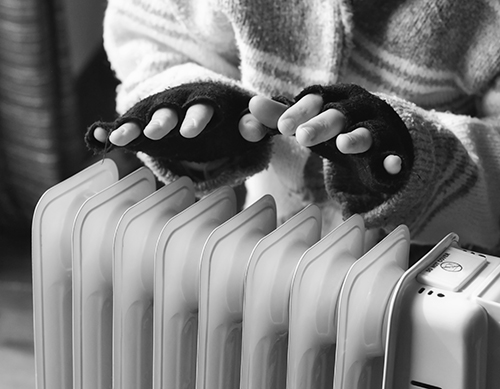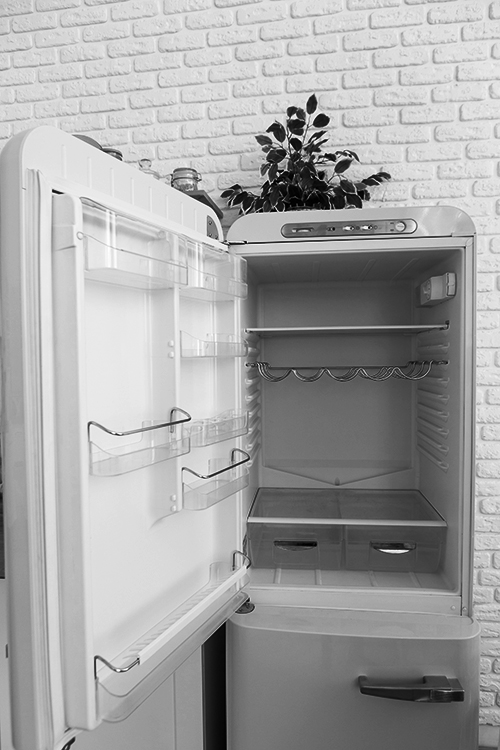“I worry about the future and whether we will be able to afford to have children ever, which makes me sad, as I think we would be good parents, but I do not want to bring a child up in poverty.”
Eleanor* is a community healthcare assistant for the NHS in Birkenhead. She shared her experience of the cost of living crisis – and her fears for the future – with UNISON.
In her late thirties, she works 38 hours a week on band three – that’s £20,330 a year, which works out at approximately the national living wage of £9.50 an hour. Her partner works 40 hours a week as a carer and is also paid approximately the living wage.
“The cost of my petrol, food and utility bills has increased by over 50% compared to what we were previously paying. Our utility bills are due to increase further this winter,” explains Eleanor.
“Our fixed mortgage rate of £590 per month is also due to end next year and will increase further. At the end of each month, we often have no money left and have to use a credit card to pay for things, so our debt of £4,000 is increasing each month.”
Eleanor says the couple have no savings, are not entitled to any benefits and don’t have any family who can help out financially. The second-hand car that she used for work, to visit patients in their homes, broke down recently and was written off.
“I have no money to buy a new one so I will have to get into more debt to buy another car as I need it to do my job,” she said.
“At the moment it feels like all we are doing is working to pay the bills and we are gradually getting into more debt, which I find depressing and stressful.”
Eleanor says she and her partner have to “think very carefully about how we spend our money and cannot afford luxuries like holidays.
“It feels we just about have our heads above water, but I am not sure how long that will last with the cost of living increasing further. We are trying our best under the circumstances.”
Little wonder that Eleanor concludes: “I feel depressed, stressed, worried, anxious and uncertain about the future.”

Over the summer, UNISON asked members to tell their union how they are coping and how they’re feeling. Thousands responded. It’s vital that the voices of public service workers are heard at the heart of the campaign for proper solutions; solutions that will help everyone and not just a tiny group of the exceptionally well off, as tax cuts would.
The appeal for personal stories came before August’s news that Ofgem is to review the energy price cap four times a year instead of two, paving the way for more massive rises to domestic bills. At the end of August, the regulator raised the energy price cap by 80%, meaning that suppliers can charge up to £3,549 a year.
UNISON national officer for the energy sector, Matthew Lay, explains why bills are soaring.
“It is excess profits by these big energy giants driving record inflation and pushing up the costs of everyday essentials,” he says.
“The price cap mechanism is not fit for purpose – it is supposed to protect consumers and keep costs down, but instead, bills are spiralling while big energy companies are banking billions of pounds in profits for their shareholders.
At the beginning of August, BP revealed that underlying profits had tripled to £6.9bn between April and June, and announced that it would hand out nearly £4bn to shareholders. For the same period, Shell recorded a £9.76bn profit. For ExxonMobil, it was£14.93bn, for Chevron £9.84bn and for Total, £8.31bn.
If your calculator is struggling, that’s a total of £49.74bn profit.
In three months.
Between just five companies.
Little wonder then that Matthew says: “Instead of calling on low and middle-income workers to show pay restraint, what we actually need is profit restraint”.
He adds that the decision to update the price cap quarterly instead of twice a year is going to push bills even higher for consumers in January. “Households that are already struggling to pay their bills will face extreme financial difficulties.
“Many households have nothing left to cut – they are already skipping meals, switching off their heating and electricity, relying on food banks and credit cards, and taking second or even third jobs to pay for the essentials.
Matt says that public sector workers are especially vulnerable because they have faced over a decade of real terms pay cuts. Their pay has not kept pace with pay in the private sector.
“Government support isn’t touching the sides,” he notes. “While Tory leadership contenders squabble about tax cuts for big corporations and the wealthy, ordinary households face the hardest winter in a generation”.
Of the suggestion from some commentators and politicians that the green levy should be scrapped, “this would only reduce bills by £150 a year, which isn’t close to the estimated £4,000 – and rising – cost of fuel bills in a single year,” says Matt.

But back to UNISON members.
Paul March from Gateshead is an assistant practitioner in a hospital – a role between a healthcare assistant and a staff nurse – and has worked in the NHS for 33 years.
He explains that he has a number of health issues, including a back problem that means he has a constant struggle with pain and mobility. To help deal with that he uses a hot tub regularly and visits the local swimming pool.
Paul says that the soaring cost of fuel has “greatly reduced the time I can spend in the pool, along with the use of hot tub. Lucky if I can get in once a week due to the financial straits we all find ourselves in.
“Prior to fuel increases, I was in the leisure centre two, three times a week. In my hot tub the same – possibly four times, especially after a busy shift.”
He says that, as a result, he’s now taking more painkillers than previously and is also concerned that his mental health as well as his physical health is being affected – not helped by fears over job security, given his worsening health.
And of course, the cost of fuel isn’t the only cost that is rising for households.
“How long can we as a family – or a community or nationally – keep going, knowing whatever we do or don’t do, a cost implication is likely?” Paul asks.
“In relation to my or our future nationally – do we have one?”
More than 5,000 members got in touch to tell UNISON about the impact that the cost of living crisis is having on them. Here are just a few more examples of what they had to say.

A duty cleaner in the West Midlands said that she was struggling to re-pay council invoices that were generated to recover overpayments for her housing benefit.
“I am working 15 hours per week and on universal credit. The dates can overlap causing council housing benefit overpayments, but I didn’t expect these invoices to be £128.00 and £158.00 and £100.60 (backdated from 2020), all lumped together as one combined recovery repayment of £12 per week for next 26 weeks.”
“This is in addition to my £57.00 weekly rent, plus council tax at £13. After outgoings, I am left with £38 for food (nothing else). I often use a credit card.”
A member who has worked as a teaching assistant for a decade explained that started to “feel the pinch” two years ago and took on a second job. Now she’s had to take on a third job “just to make ends meet.
“There isn’t a day that goes by where I am not worried about how I am going to manage,” she said.
A former social worker from Nottingham who was forced out of their rented home after 11 years with a no-fault notice, now faces higher rent – and higher travel costs to visit her 84-year-old mother, who she supports.
She is seeing a mental health nurse because of severe anxiety and depression.
“I have worked hard. I’ve given a lot to society as a social worker doing very complex work in difficult circumstances. I’m unwell now and on the scrap heap. The future is bleak.”
A community staff nurse delivering nursing care in patients’ own homes in Milton Keynes has to use her own car for work. She is now spending £200 a month over the NHS petrol allowance to do her job, and “booking bank shifts just to pay for petrol”.
Another member described sitting at home with no lights on and coasting their car down hills, out of gear, to save fuel.
“What’s the point in trying to help people if the people at the top are only going to help themselves? Looking into getting a van that we could try to live out of instead of renting. Just what’s the point?”
A GP receptionist from Leeds wrote that they’re financially feeling the problems and the worry about how to get through the winter is keeping them awake at night, which adds to the pressures they’re facing at work.
“The abuse we get almost on a daily basis leaves me shell shocked. Many of us are off sick or quitting. Low paid. Understaffed. Not supported. I don’t know how long I can keep going before I break.”

UNISON general secretary Christina McAnea described the responses from members as “shocking”.
“It’s devastating to learn how hopeless workers feel about their futures. They’ve given long service, doing essential jobs for the public services we all rely on, but they’re staring down into a disastrous spiral to the bottom.
“It’s shocking that some are forced to downgrade their own lives – using credit cards to pay for food and even considering moving out of their homes to live out of a van.
“Family financial problems are never just temporary cash problems. The traumatic mental and emotional pressures leave lasting damage, and they hinder children’s life chances.”
And she continued: “Of course quick fixes are needed to ease pressures, but these testimonies clearly spell out how a broken system is making life more difficult.
“Workers who dedicate their time to addressing the needs of others should be rewarded fairly so they can live a dignified and hopeful life.”
UNISON is clear that poverty is a choice made by the powerful, and is organising a major campaign, Together We Rise, to give voice to members and to challenge on the government to act on the cost of living crisis.
Later this month, you’ll be able to visit a new campaign website. There will also be a petition to promote the campaign aims that you can sign and share.
UNISON is also working with the TUC on a lobby of Parliament on 19 October to #DemandBetter, with a day of local campaigning and lobbying beforehand, on 14 October. Find out more here.
Further actions will be announced in the coming days and weeks.
You can also find resources for the campaign here.
Together we rise.
* Eleanor’s name was changed at her request.





The government needs to wake up and face reality, that there policies are not working and listen to the people that are struggling to live with the cost of living crisis and fuel poverty. Having these one off energy scheme will not fix the crises that is happening today, they need to increase the living wage, instead of making people claim universal credit to find out they are not entitled. The universal credit is a hidden cost, and does not help everyone in need.
dont forget unison pensioners either worked all my life paid my Nat.insurance, worst pension in Europe now wondering whether to HEAT OR EAT>>>> savings I have enough to my funeral will have to use that>>>>
NO WAY CAN THE TORIES BLAME LABOUR OR THE EU THIS DEBACLE THIS VILE MESS IS STRICTLY AND ONLY DOWN TO THE TORIES SUCKING UP TO BIG CORPS AND BILLIONAIRES THIS SHOWS THEIR TRUE COLOURS!
worst time of our lives, struggling to make ends meet. We’re in the 21st century for heavens sake..It’s like stepping back in time.. But even back in those days people seemed much happier on hard times.. Now this is one BIG MESS and people will kill themselves.
Like most people, life has become a struggle. I agree with all the comments listed here, do we eat or heat?! My working life will end soon and I worry about what the future holds for me. How can these company’s get away with treating, the general public, who pay their wages, with what can only be described, as contempt. For the past year and a half, I have been trying to get my service provider, to give me a working gas meter. I have been given no means of paying for the gas I am using, they have fobbed me off for so long and made empty promises that I feel I am losing my mind. Is there any help out there for this situation?
This is heartbreaking and yet far too close to comfort. I thought, as a family we struggle, I thought it was just us – foolish with money. Yet the reality is, we don’t get paid enough. Not even halfway to what it should be. This, unfortunately is making me consider leaving the job I am in (School support) and become working ‘full time’ else where. This then causes more issues of having to pay for after school clubs, out of school clubs etc so we’d be no better off. Yet the thought of going food shopping each week with the increases makes me feel physically sick. The thought of putting the heating on or cooking food at home scares me. My boys growing up and wanting the latest football kit or the latest computer game – knowing i’ll never be able to afford to pay for it, earning what I earn. Not going to exercise classes, because a, I can’t afford the fees and b, I can’t afford the additional petrol that it would entail – as a result affecting my mental health. Literally counting the pennies. Then you hear all these fuel businesses earning billions. MP’s claiming for living expenses and then giving themselves a pay rise yet cutting public sector funds….. and the rest. Makes my blood boil.